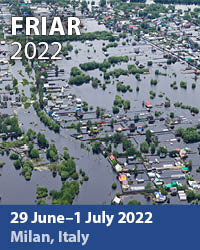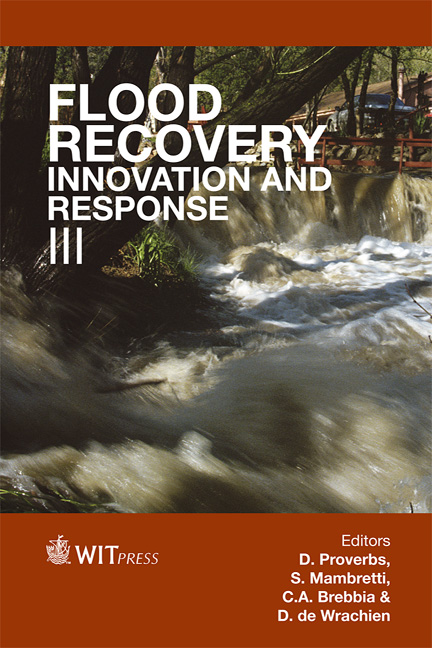Sustainable Flood Memories, Informal Knowledge And The Development Of Community Resilience To Future Flood Risk
Price
Free (open access)
Transaction
Volume
159
Pages
12
Page Range
253 - 264
Published
2012
Size
355 kb
Paper DOI
10.2495/FRIAR120211
Copyright
WIT Press
Author(s)
L. J. McEwen1, F. Krause2, O. Jones1 & J. Garde Hansen2
Abstract
The UK policy change from ‘flood defence’ to ‘flood risk management’ in the 1990s has involved shifts to more distributed flood risk management responsibilities. This poses questions about roles of floodplain residents in community-led adaptation planning for changing flood risk, and how these roles can be supported/strengthened. Research evidence emphasises importance of informal/local/lay knowledge, ‘watery sense of place’, flood memories and shared flood heritage, in how communities prepare for, and recover from, floods. This paper outlines initial research outcomes from an interdisciplinary UK Economic and Social Research Council-funded research project that proposes the concept of ‘sustainable flood memory’ in the context of effective flood risk management. This is conceived as an approach to memory work that is community focused, archival, integrating individual and collective experiences, involving inter- and intra-generational communication, and strategies for its future. The project aims to increase understanding of how flood memories provide a platform for developing informal knowledge, so creating social learning opportunities in communities that can increase their adaptive capacities and flood resilience. It explores: how communities remember and archive flood experiences; how local flood knowledge is materialised, assimilated and protected; the role of catastrophic floods (e.g. July 2007, River Severn, UK) in building ‘community’ memory and flood risk knowledge; and whether informal knowledge is tacit or otherwise, if and how it is learned, and whether it can be
Keywords
adaptive capacity community engagement, flood risk, informal knowledge, resilience, sustainable flood memory





